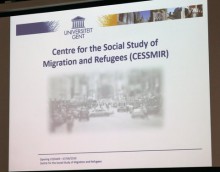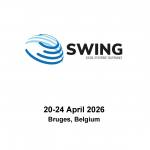Qualifying Deportation

Professor Barak Kalir (University of Amsterdam),
Thursday 12/03, 15:00-17:00 | John Vincke Room (Korte Meer 5, Campus Aula)
Bordering Europe.
Research seminars on the securitization of Europe’s migration policies.
The lecture series is organized by the Centre for the Social Study of Migration and Refugees (CESSMIR), in collaboration with UNU-CRIS and the Department of Conflict and Development Studies (Ghent University). The speakers have been invited to give a public lecture as part of the ‘Debating Conflict and Development 2020’ series on Bordering Europe. In the research seminars below, three speakers will also present their most recent work, and engage in discussion with researchers. We would like to encourage especially those who are interested in securitarisation, deportation, borders, immobility and Europe’s externalization policies to join us in these seminars.
Abstract
In a fundamental way, oppressive mobility regimes, primarily installed in order to limit the movement of non-western migrants and refugees, are the most palpable – physical and mental – evidence for the ongoing re-configuration of colonial power structures in our contemporary world. In their relationship to territorial sovereignty, ideas like identity, belonging, and the very institution of citizenship, have always operated along the crucial vectors of race, gender and class. Accordingly, we need a concerted social scientific effort geared towards the ethnographic study of bureaucrats – with and without guns, to paraphrase David Graeber – in institutions charged with implementing oppressive migration policies. We should study their life worlds and normative perceptions, follow their professional pathways to different offices, and analyse how their moral subjectivities are (re)shaped by particular organizational cultures (trainings, manuals, promotions, sanctions, burnouts, etc.), peer group pressures, economic incentives, and so forth.
In this presentation I shall focus on how racist and racializing perceptions of deportation police officers in Spain shape the lives of deportable migrants. I elaborate on how a recent policy move to narrow down the focus of deportation to ‘foreign criminals’ has, de facto, led to the expansion of police discretionary power and compounded arbitrary actions against some of the most precarious illegalized migrants in Spain.
Biography
Barak Kalir is Associate Professor at the Department of Anthropology, University of Amsterdam. He is the Co-Director of the Institute for Migration and Ethnic Studies (IMES) and has been leading in recent years a 5-year ERC project that is entitled: ‘The Social Life of State Deportation Regimes: A Comparative Study of the Implementation Interface in Greece, France, Spain, Ecuador and Israel’. He is the author of ‘Latino Migrants in the Jewish State: Undocumented Lives in Israel’ (Indiana University Press), and some of his more recent academic publications include: ‘State desertion and "out-of-procedure" asylum seekers in the Netherlands’ (Focaal: Journal of Global and Historical Anthropology 2017), ‘Departheid: The Draconian Governance of Illegalized Migrants in Western States’ (Society and Conflict 2019), and a special issue on ‘Re‐searching access: what do attempts at studying migration control tell us about the state?’ (Social Anthropology 2019).
If you are planning to attend, please register via the link below. Registration is free, but places are limited.
Upcoming Events
Similar Events
No events found.



